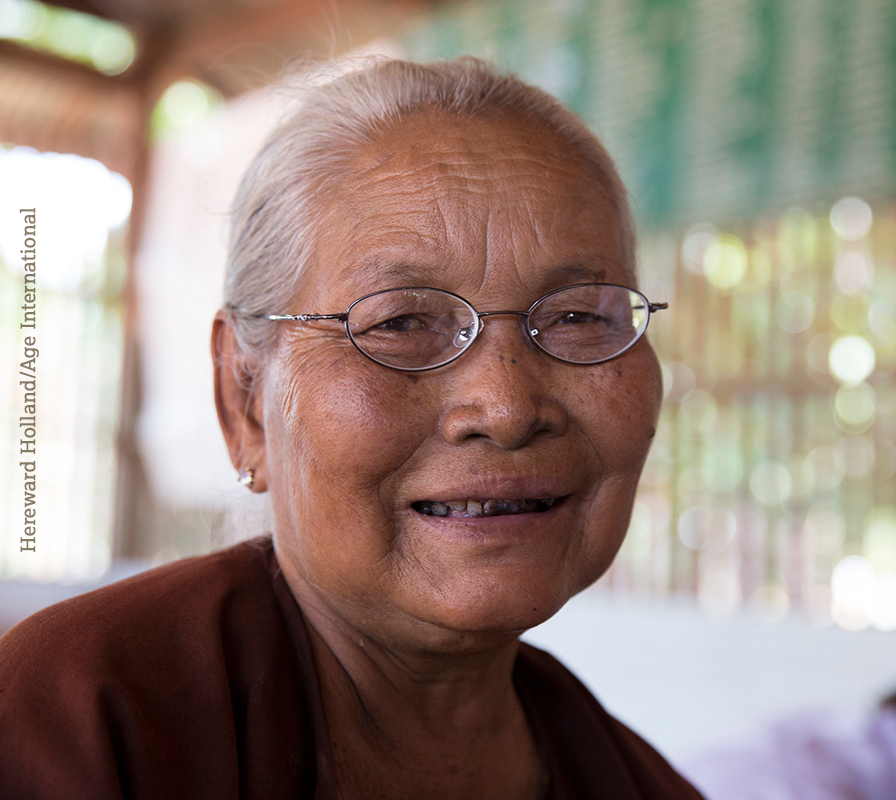Norway tops the list, Latin America leads pension revolution, life expectancy continues to rise, a third of countries trail significantly behind top performers
Today (1 October 2014), the United Nations International Day of Older Persons, HelpAge International is launching the Global AgeWatch Index 2014, ranking 96 countries according to the social and economic wellbeing of older people.
This represents 91 per cent or nine out of ten people over 60 across the world. It measures wellbeing in four key areas: income security, health, personal capability and an enabling environment.
Regional results – Asia
The highest ranking Asian country in the Index is Japan (9), followed by Thailand (36). The Index shows a high rate of pension coverage in Thailand despite relatively low GDP per capita. Thailand’s policies on social protection, including the introduction of a universal pension, show a direct effect on the welfare of its older citizens.
Looking at the regional average, East Asia and ASEAN countries are in the top half of the Index for the employment indicator, and for enabling environment indicators, particularly personal security, and satisfaction with public transport.
However, while we see higher than average levels of employment in the region, we see lower than average education levels among the over 60s. This paints a picture of overrepresentation of the 60+ age group in the low-skilled workforce, which is traditionally more physical and less secure.
International results
Globally Norway (1) tops the Index this year, closely followed by Sweden. Apart from Japan (9) all the top 10 countries are again in Western Europe, North America and Australasia. Five new countries have been added – Bangladesh, Iraq, Mozambique, Uganda and Zambia.
The worst place in the Index for an older person is Afghanistan (96). Just above it are Mozambique (95), West Bank and Gaza (94) and Malawi (93).
All regions are represented in the lowest quarter, with African countries making up half of those with low income security rankings and poor health results. Venezuela (76), Serbia (78) and Turkey (77) are included in this section in similar position to countries in sub-Saharan Africa and Asia.
Chile (22) leads a cluster of Latin American countries including Uruguay (23), Panama (24), Costa Rica, (26) Mexico (30), Argentina (31), Ecuador (33) and Peru (42) which do well in the Index, particularly on income security.
There are currently 868 million people over 60 – nearly 12 per cent of the global population. By 2050, it’s predicted to rise to 21 per cent: with nearly as many people aged 60 or over (2.02 billion) as aged under 15 (2.03 billion).
The Index tells us that economic growth alone will not improve older people’s wellbeing and specific policies need to be put in place to address the implications of ageing. More than one third of countries trail significantly behind the best-performing countries.
The report this year focuses on pension policy and how this is being managed across the globe. Only half of the world’s population can expect to receive even a basic pension in old age, and although policies supporting people in later life exist, they need to be implemented faster and more systematically.
“The unprecedented rate and speed of population ageing presents policy makers with a challenge.” said Toby Porter, Chief Executive of HelpAge International. “Only if they act now will they have a chance to meet the needs of their citizens and keep their economies going.”
Read the full press release, click: Global Age Watch Index 2014 Asia regional press release 24 Oct 2014.
Regional Media Contact:
Mr Teerapong Laptwan, Network and Communications Manager
HelpAge International’s East Asia/Pacific office in Chiang Mai, Thailand
Tel: +66 (0) 53 225 440 ext.13. Mobile: + 66 (0) 66 81 672 7693
teerapong@helpageasia.org
Global Media Contact:
Sarah Gillam, Media Relations Manager
HelpAge International’s office in London
Tel: +44 (0) 20 7148 7623. Mobile: + 44 (0) 7713 567 624
sarah.gillam@helpage.org

